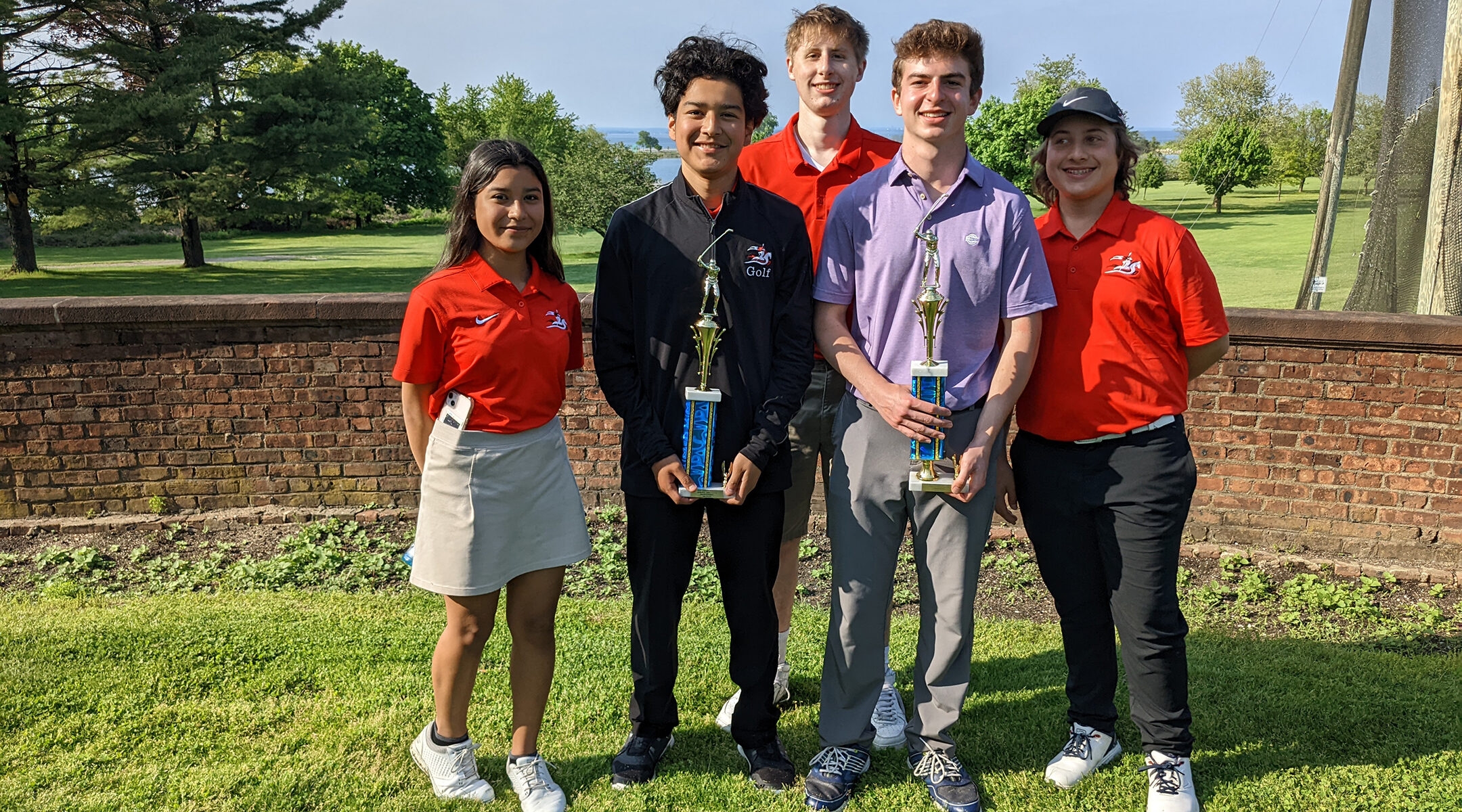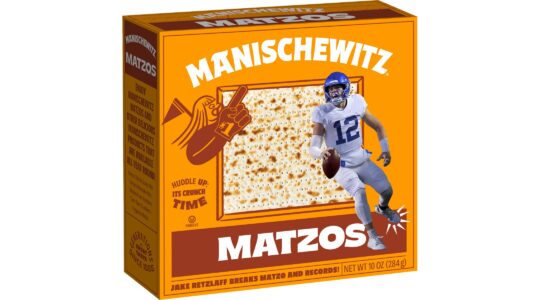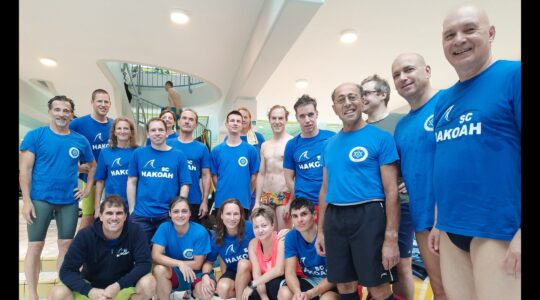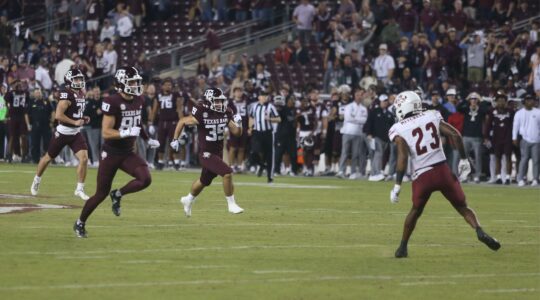This article was produced as part of JTA’s Teen Journalism Fellowship, a program that works with Jewish teens around the world to report on issues that affect their lives.
(JTA) — When the Long Island Lutheran Crusaders boys golf team begins its 2023 season against other private, mostly Christian schools, they’ll boast a not-so-secret weapon: Boaz Exodus Ginzburg, the two-time Private Schools Athletic Association champion.
Ginzburg is the lone Jewish player on the team, where he has formed bonds with his teammates and broken down barriers on the golf course and beyond. A student at Schechter School of Long Island, he is able to play for “LuHi” because his Jewish day school doesn’t field a golf team.
In a time with rising antisemitism, Ginzburg’s journey is especially resonant. Though he plays on a team with a mascot that may draw concerns for its historic connections to antisemitism and Islamophobia, he feels a bond with his teammates.
“We’re the LuHi Crusaders, which feels a little bit weird, and also I have to walk into their school and they’ve got crosses everywhere, which is fine, because they’re a Christian school,” said Ginzburg. “But it’s just a little awkward for me.”
He began his varsity golf career in Port Washington, playing for Schreiber High School’s team while still an 8th grader in 2019, before the 2020 season was canceled. Then, in 2021, he transferred to Schechter. He was able to join the Lutheran High School Crusaders, a golf team in the same conference as his school.
Prior to Ginzburg’s arrival, no player had completed an undefeated season as Ginzburg had, nor were any of the current players champions of their league. Ginzburg accomplished both of these feats during his 2021 and 2022 seasons.
But even that celebration was tinted with otherness. “When I won the championship, it’s these very Catholic kids and the winner is ‘Boaz Exodus Ginzburg,’ which is a little bit odd,” said Ginzburg.

Ginzburg is the lone Jewish player on the Long Island Lutheran team, where he has formed bonds with his teammates and broken down barriers on the golf course and beyond. (Courtesy of Jonathan Klemp)
Ginzburg was on track to lead Schreiber’s team as a freshman during the 2020 season, but the golf team had its season canceled due to COVID-19. At Schechter, he was able to join his two siblings and study in a fully in-person environment. Other elite athletes at Schechter have been able to play sports at other schools when Schechter does not field a team.
Despite being the lone Jewish player on the team, Ginzburg feels totally comfortable with his teammates, and doesn’t see his religion as a barrier between him and them. While Ginzburg isn’t as close with the other players as they are with each other, he still has been able to form friendships with his teammates, finding common interests outside of golf.
“After a month, I was truly integrated,” said Ginzburg. “There’s no barrier because of religion. I only see them three months out of every year for the golf season, but I still talk to them occasionally. One of them is a pretty big Mets fan, so he and I talk about the Mets sometimes.”
Ginzburg’s coach, Jonathan Klemp, watched as he became a true member of the team, and saw it as a testament to his character.
“Upon meeting Bo, it didn’t take me long to figure out that integrating him to the team would go well,” said Klemp. “However, even the most optimistic person wouldn’t have dreamed it would go as well as it did. Bo took it upon himself to get to know each player on the team — even the young, middle school golfers. Bo has been raised right and also naturally is just a caring kid. I also think that he was intentional about making the integration go well.”
LuHi’s number two golfer, Brandon Tapia, has been playing with Ginzburg since Ginzburg joined the team in 2021, and as the team’s top players, they spend a lot of time together.
“As soon as Bo first practiced with us, he was a part of us,” said Tapia. “Bo and I would always be paired as the 1 and 2 player during the matches and in practice too. I got to know him and he got to know me well too. As the years flew by, we’d still be paired in groups together on the course and always have a great time out there.”
Tapia also sees no religious barrier between the two. “We actually thought it was pretty cool to be a team that represented different religious backgrounds,” said Tapia.
Ginzburg and Tapia have learned about religion from the other, and about making friendships across boundaries.
“I asked them a couple of questions in the beginning, and if I get curious about something I’ll either shoot them a text or ask the next time I see them,” said Ginzburg. “I have a better idea of how the different sects are split than I did before.”
Yet the golf course is also a welcome escape from religion.
“They spend all their time at school learning about religion just like I do, so it’s not really the first thing we want to talk about outside of school,” said Ginzburg.
Having Ginzburg on the team, said Klemp, “has affirmed to me that though we all have different backgrounds and beliefs, that we can do wonderful things uniting together for a common purpose. In our case, that purpose is to compete on the golf course in a game we love. I think we all can do well to focus on things we have in common as opposed to dwelling on things that could drive us apart.”
JTA has documented Jewish history in real-time for over a century. Keep our journalism strong by joining us in supporting independent, award-winning reporting.






